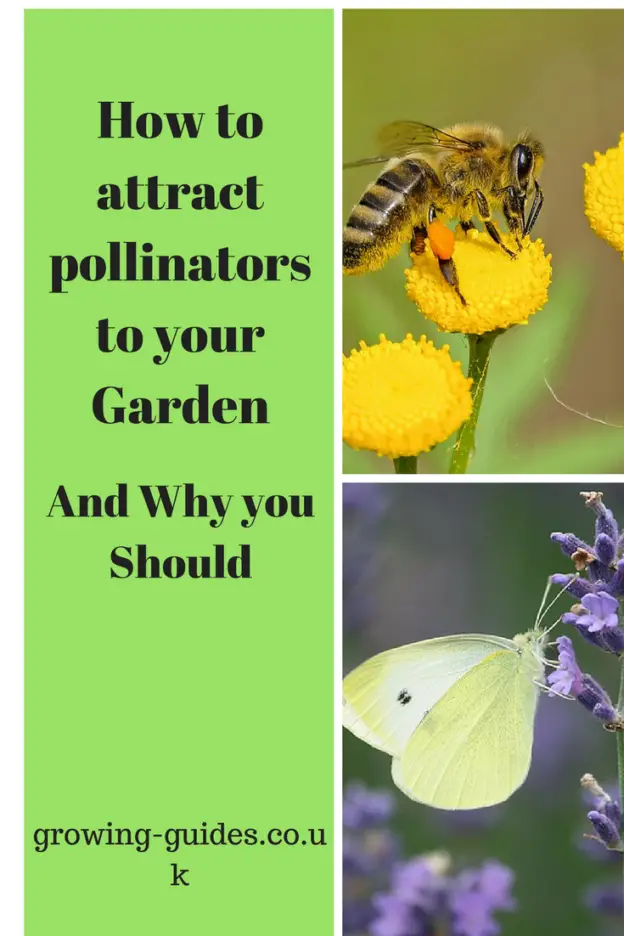As the EU decides to ban the use of neonicotinoids in all member states by the end of this year it is our job as gardeners to increase the depleting numbers of pollinators. So how to attract pollinators to your garden and why to attract pollinators to your garden?
What Are Neonicotinoids?
Neonicotinoids are a group of pesticides that have been used in the commercial farming industry since the early 1990s. Ironically they were developed as a “safer” solution to the problems caused by large scale, monocrop farming. They are a systematic pesticide and are absorbed by the whole of the plant making it poisonous to insects.
The problem with systematic pesticides is that they are indiscriminate, they kill both harmful and helpful insects. Unfortunately the ban only applies to 3 of the 7 neonicotinoids and only for use with crops attractive to bees. So after all the hype, it is at best only a step in the right direction.
It does not take into account the impact on birds, other insects or aquatic life so clearly much more needs to be done.
Based on the body of evidence, we can see that it is absolutely correct to take a precautionary approach and ban these chemicals.
Jacqueline McGlade, EEA Executive Director
According to the European Environment Agency’s website productivity is not affected when these chemicals are not used so clearly there is no need for them.
Why Attract Pollinators To your Garden?
Short answer, without pollinators the majority of plants cannot produce seeds/fruit. So the more pollinators you attract to your garden the more productive your garden will be. According British Government statistics of the 26 bumble bee species recorded in the UK 80 years ago, two are no longer present and another six are now found in a much smaller area of the country. Recently however, one new species has arrived and another is being re-introduced. The number of bee species has fallen in many parts of the UK.
Remember that’s just Bumble bees. There are many other pollinators including;-
- Hoverflies
- Butterflies
- Moths
- Beetles
- Masonry Bees
- Honey Bees
- Leaf Cutter Bees
- Cuckoo Bees
These aren’t even being considered at government level. Us gardeners are at the front line and it’s for us to lead by example. It’s time to look at our gardens as more than just pretty extensions to our homes or a source of food for us. They are also an area that supports wildlife (or should be) and as such we need to make it as attractive to that wildlife as possible.
How To Attract Pollinators To Your Garden
All flowers will attract pollinators but there are some basic guidelines that mean you don’t need a degree in botany to make a huge difference. Firstly flowers with single petals are easier for insects to access. Secondly the season usually goes on a lot longer than our summer weather.
Early Flowering Plants To Attract Pollinators
Grow plants that flower through the winter like;-
- Clematis
- Crocus
- Hellebores
- Winter Aconite
- Honeysuckle
- Snowdrops
- Willow
- Ivy
- Daffodils
Allow a patch of flowering nettles to grow and of course the humble dandelion. In Spring and Summer most gardens will have enough flowers to attract pollinators but by adding variety in your planting you will attract a wider range of pollinators. Allowing herbs to flower will attract a surprising number of pollinators to your garden.
Late Flowering Plants To Attract Pollinators
As the days shorten and summer turns towards Autumn any pollinators still on the lookout for food will appreciate;-
- Monkshood
- Anemones
- Perennial Asters
- Michaelmas Daisies
- Campanula (Bell flowers)
- Autumn Crocus
- Dahlias
- Ivy
- Tilia Henryana (Lime Tree)
The lime tree is one of the last to flower in the UK.
Throughout the year leave small bowls of water available for Bees to drink from. If possible add small areas for mason bees to move into. Most importantly keep it organic, herbicides and pesticides are for the most part completely unnecessary and incredibly harmful to all wildlife.
Which types of Bees do you attract in your garden? Let me know in the comments below.

